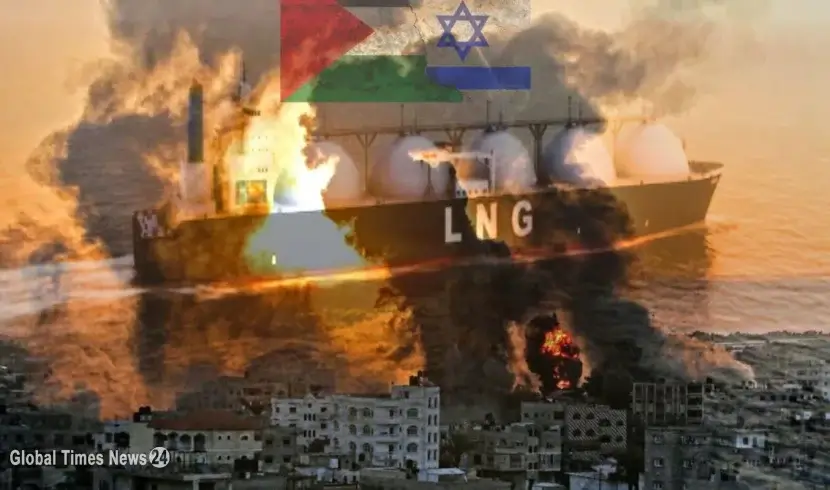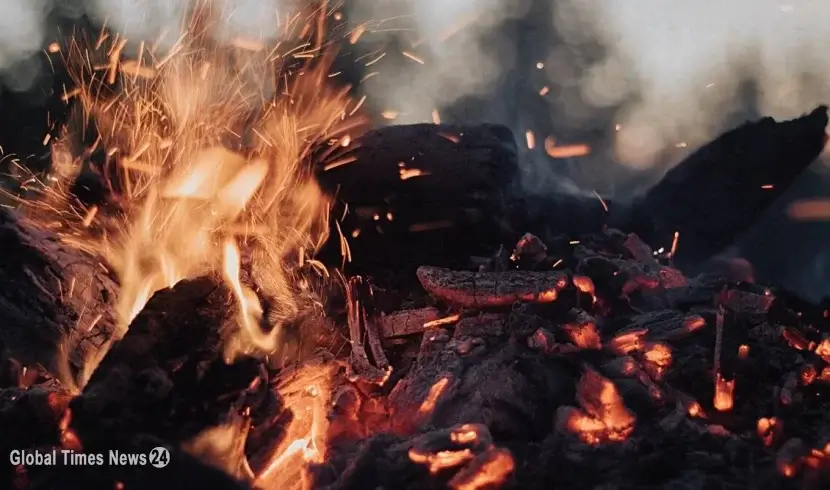Concerns Rise Over Israeli Intentions to Exploit Gaza's Gas Reserves as Colonial Gain
Table of Contents (Show / Hide)

In the middle of Israel’s ongoing assault on Gaza, Prime Minister Benjamin Netanyahu’s far-right government quietly doled out licenses to local and international companies to find and extract gas from areas considered to be Palestinian maritime zones.
This happened in October, just weeks after Israel launched its war on the enclave, and sparked strong reactions from rights groups and activists who expressed concerns over Israel’s intent to seize Palestinian natural resources.
In February, legal center Adalah sent a letter to the Israeli energy minister, while Foley Hoag, a law firm representing pro-Palestinian organization such as Al-Haq, Al Mezan Center for Human Rights, and the Palestinian Center for Human Rights, sent notices to the companies awarded the licenses.
Their demands were clear: the licenses should be revoked, any planned exploration halted, and a bar on the issuance of more licenses for areas falling within Palestinian maritime territory.
While the organizations still await a response, the issue is being raised on international levels.
In Italy’s Parliament, the Greens and Left Alliance put forward a resolution to suspend any activity related to Gaza due to the involvement of Italian company ENI.
While the resolution did not pass, it led to questions over the government’s stance. Foreign Minister Antonio Tajani responded by saying that ENI’s “contract is still being finalized” and there was “currently no exploitation of resources,” according to local media reports.
However, that has done little to assuage the fears of rights group and activists.
Suhad Bishara, legal director at Adalah, said the act of awarding licenses suggests that Israel is after Palestinian natural resources.
“We are concerned that Israel would unilaterally explore and exploit the natural resources in Palestine’s maritime waters for its own financial and colonial gains,” she told Anadolu.
Controversial contracts
According to Adalah, Israel has awarded licenses to six companies, including Italy’s ENI, Dana Petroleum, a UK-based subsidiary of the Korea National Oil Corporation, and Israeli company Ratio Petroleum. These three companies are the ones that have been issued notices.
The licenses were awarded after a fourth round of bidding launched by the Israeli government in 2022.
The areas they cover include Zone G, which lies adjacent to the shores of Gaza.
Around 62% of Zone G falls within the maritime boundaries declared by the state of Palestine in 2019, in accordance with provisions of the 1982 UN Convention on the Law of the Sea (UNCLOS), of which Palestine is a signatory, according to the legal center.
Israel has also issued tenders for Zones H and E, it added, pointing out that around 73% of Zone H falls within Palestine’s declared maritime boundaries, along with 5% of Zone E.
“Despite not being a party to UNCLOS, Israel has responded to the Palestinian declaration by maintaining that, since Israel does not recognize Palestine as a sovereign state, Palestine lacks the authority to declare its maritime boundaries and waters,” Adalah said in a February statement.
“This argument stands in direct contradiction to established principles of international law,” it asserted.
History of exploitation
Bishara emphasized that only Palestinians can be “the exclusive legitimate beneficiaries of the exploitation of these resources,” adding that Israel has a history of violating and abusing Gaza’s resources.
“Historically, Israel has a track record of exploiting Palestinians’ natural resources for its own financial benefit. For example, in the West Bank, Israel has engaged in activities such as quarrying and exploiting resources from the Dead Sea. These actions constitute a grave violation of international law,” she said.
In a recent article for Middle East Eye, economist and researcher Walid Abuhelal also pointed out that in addition to Gaza’s natural gas, Israel has been “stealing Palestinian natural gas from the Meged oil and gas field in the occupied West Bank under the pretext that the field is located to the west of the armistice line of 1948.”
He contends that a “more important” reason for Israel’s current war is “the promising natural gas wealth found in the Eastern Mediterranean, specifically off the coast of Gaza.”
He pointed out that the Levant gas field “includes the shores of historic Palestine (Israel and Gaza)” and has an estimated 122 trillion cubic feet of natural gas.
British Gas confirmed in 1999 that Gaza Marine, a natural gas field just off the Gaza coast, has around 1.1 trillion cubic feet of gas reserves, according to Abuhelal.
Next steps
Regarding the timing, Adalah said Israel initially issued the tender in 2022, with a pre-scheduled announcement date for the winners.
However, the fact that these were awarded during the deadly war on Gaza “highlights Israel’s complete disregard for international law and the catastrophic consequences of its assault on Palestinians in Gaza,” said Bishara.
She said if there is no response to their demand and the gas exploration licenses are not revoked, Adalah will continue its efforts to pressure the Israeli government and plan further legal action.
“As stated in the notices to the companies, the organizations have noted that they are prepared to use all available legal mechanisms to the fullest extent, unless the companies refrain from activities in contravention of international law in the occupied territory, including in Palestinian waters,” she said.
URL :
News ID : 3132

 Maine shooting; 4 dead and 3 injured
Maine shooting; 4 dead and 3 injured
 Vontae Davis, the former NFL cornerback dead, aged 35
Vontae Davis, the former NFL cornerback dead, aged 35
 Gunman pointing at Argentine vice president arrested
Gunman pointing at Argentine vice president arrested
 Operation Al-Aqsa Storm: Impact on Israeli Economy
Operation Al-Aqsa Storm: Impact on Israeli Economy
 Fire in Xinjiang leaves 10 dead, nine wounded
Fire in Xinjiang leaves 10 dead, nine wounded
 5 BEST UAE Free Zones for ANY PURPOSE
5 BEST UAE Free Zones for ANY PURPOSE
 Weirdest Wars in the world Where Nobody Was Killed
Weirdest Wars in the world Where Nobody Was Killed
 Most Luxurious Prisons Around the World
Most Luxurious Prisons Around the World
 Super Weird Facts About WW2 You Didn't Know
Super Weird Facts About WW2 You Didn't Know
 Nakba 75: Palestinian citizens of Israel are exiles in their own land
Nakba 75: Palestinian citizens of Israel are exiles in their own land
